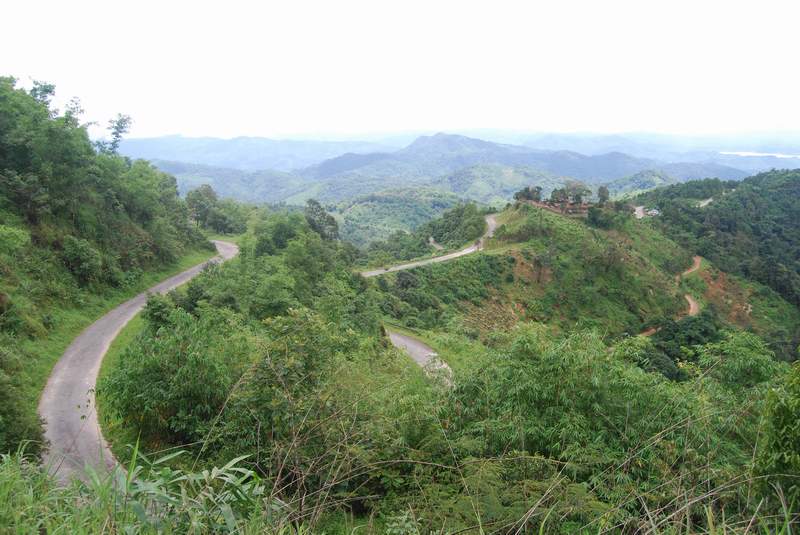A new model for post-conflict tourism in the area of Thandaunggyi in Karen State was reviewed at a conference yesterday by community stakeholders, government officials and tourism representatives.
Three years since Thandaunggyi was selected as a pilot project for tourism development, new businesses have begun to grow in the area. Domestic tourists flock to the area for religious pilgrimages, but a new market has also opened to cater to foreign visitors who may enjoy trekking in the misty mountains and viewing the natural beauty.
Delegates at the conference, which was held in state capital Hpa-an, discussed the process of developing infrastructure such as bed and breakfast options (B&Bs) and tourism services.
“This project empowers the people and improves the livelihood opportunities in the region,” said Léon de Riedmatten, an advisor to Peace Nexus, one of the organisers of the event along with the Hanns Seidel Foundation.
Foreigners were previously not permitted to visit the area, but now, Riedmatten says, overseas visitors are slowly trickling in. He emphasises that the development has been organised from the bottom-up and from leaders in the community.
“They [local people] have built B&Bs with their own money,” he said. “They don’t expect any support from the outside, but [hope for] training and facilitation among the different stakeholders.”
New opportunities
“Thandaunggyi was once a British summer escape, with some beautiful colonial buildings. It is a sacred site. Now the community has upgraded infrastructure so there is a lot of potential,” said Barbara Schott, facilitator of Thandaunggyi development working group, speaking by phone to DVB from the conference.
New restaurants, gift shops, and road development has already started to bring benefits to the community and a tourist information office is to open next month. Seven B&Bs have also been built.
Riedmatten adds that this pilot project shows other post-conflict communities in Burma “can get some dividends from the ceasefire and peace process.”
The community-led model is the key to Thandaunggyi’s development success so far, says Riedmatten, and as an internal peace-building model. “We have these talks at the highest level [21st Century Panglong Conference] and they might last very long, so it is important to have some second tract activities where communities can improve their livelihoods.”
He adds, “The community can choose what businesses they want to invest in and in the end if they can have a better life, and keep their identity and culture, it’s a way to help the peace process.”
Challenges
The project is, so far, showing modest returns, but some participants at the conference say bigger challenges need to be tackled before the model can truly expand in the region.
Building a proper waste management system was one of the future goals mentioned. A recycling education project has been initiated; rubbish bins are created out of bamboo; and basic latrines have been built.
[related]
“It [environmental conservation] doesn’t come naturally, but you need to give these things time and build a proper system step by step,” she says.
Some open questions on regulatory conditions and licensing were also raised at the conference. It’s unclear what the government policy is on the conditions for operating B&Bs and the steps for applying for a licence.
Safety and security is also an issue “as there are still armed groups in the area,” explains Schott, pointing to military checkpoints and landmines. There is also a lack of telecommunications in the mountainous region.
Despite the challenges, Riedmatten and Schott said they were happy with the progress of the pilot. Riedmatten says to build new projects in previous conflict zones could take five to ten years to build trust and sustainable processes for tourism.
He concluded: “It’s better to go slowly and surely, rather than fast and fail.”



